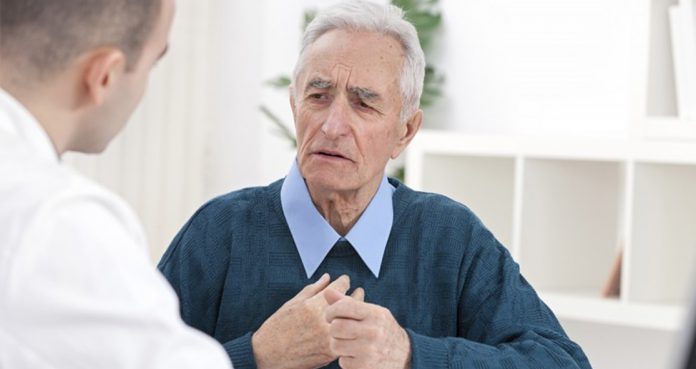A new study published Monday in Annals of Internal Medicine has found that non-drug treatments could be more efficacious than medications in some people with dementia who experience psychiatric symptoms such as agitation and aggression.
The study found that non-drug interventions such as massage therapy, touch therapy, and outdoor physical activities could help reduce aggressive or agitated behavior in some patients with memory loss.
Researchers from St. Michael’s Hospital of Unity Health Toronto and the University of Calgary said outdoor activities were found to be more effective than psychiatric medications for treating aggression in patients with dementia, while massage and touch therapy were found to be more effective in treating agitation.
Study author Dr. Jennifer Watt said, “Dementia affects 50 million people worldwide and as many as three-quarters of those living with the disease have reported neuropsychiatric symptoms including aggression, agitation and anxiety.”
“Unfortunately, our understanding of the comparative efficacy of medication versus non-medicine interventions for treating psychiatric symptoms has been limited due to a lack of head-to-head randomized controlled trials of the two routes,” added Dr. Watt.
Along with Dr. Watt, Dr. Sharon Straus and Dr. Zahra Goodarzi looked at the effectiveness of pharmacological and non-pharmacological treatments on more than 23,000 people with dementia who had symptoms of agitation and aggression.
Dr. Straus said, “Treatment should be tailored to the patient and their specific experience. This study, however, does shed light on the opportunity to consider prioritizing different types of interventions for aggression and agitation when appropriate.”
The researchers said further studies are required to understand the patients’ response to non-pharmacological interventions, along with the cost differences between drug and non-drug interventions to treat agitation and aggression in dementia patients. “This study shows us that multidisciplinary care is efficacious, and that is consistent with a person-centered approach to care,” explained Dr. Watt. “It points to evidence of the benefit of supporting multidisciplinary teams providing care to patients in the community and nursing home settings.”





















